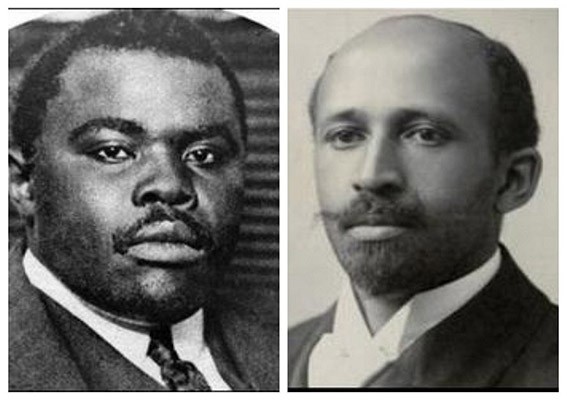African Americans at the start of the 1920s were struggling to overcome racial barriers. W.E.B. DuBois and Marcus Garvey were two influential black political leaders of the 1920s. The two men came from separate backgrounds, which subsequently led to their differing outlooks on the destiny of the African American race. Their ideas often differed from other black leaders.
DuBois’s affiliation with the NAACP attempted to solve the problem through integration. Garvey’s UNIA centered around the idea of blacks helping blacks, attempting to relieve blacks of any dependence on whites. Both men had a lasting impact on generations to come.
The beliefs of W.E.B. DuBois and Marcus Garvey, as influenced by their background, had a profound effect on their life work, including the organizations they were involved with and the type of people they attracted. DuBois came from a more privileged background.
His life work centered on improving the condition of African Americans, but he wanted to do this by working with liberal whites through the NAACP. His following attracted mostly upper class and intellectual blacks. He concentrated on the talented tenth, the most talented and intelligent African Americans.
This alienated poorer blacks, who turned instead to Marcus Garvey. Garvey grew up in an impoverished Jamaican community. After minimal schooling, he traveled around Latin America and eventually ended up in England. Here, he embraced the ideas of the Pan African Movement. These ideas were the groundwork for the organization he founded, the UNIA. He attracted working class blacks, who formed a devoted following of the man and his ideas.
DuBois and Garvey had a lot of influence over later generations and helped further the cause of racial equality. They facilitated black pride and began what would later become the civil rights movement. Garvey’s UNIA was a focal point for blacks to gather around. His back to Africa movement was very popular.
His success was due mainly to the fact that he was a great orator. DuBois’s NAACP was, perhaps, the most important black organization in the country. His editorship of The Crisis was beneficial in spreading the message of DuBois and the NAACP. Both Dubois and Garvey disagreed with the ideas of Booker T. Washington.
Washington was another important black leader. Washington’s ideas called for blacks to accept themselves as second best. DuBois did not want to accept this. He founded the NAACP to advance blacks and advocated racial integration. Garvey realized that some cooperation with whites was needed to make some headway. However, he mostly advocated African American’s separating themselves from white America and returning to Africa. Neither of the two men’s ideas, as different as they were, coincided with Washington’s.
These different views on DuBois and Garvey give a good idea of what they fought for. Their work continues to influence young blacks
